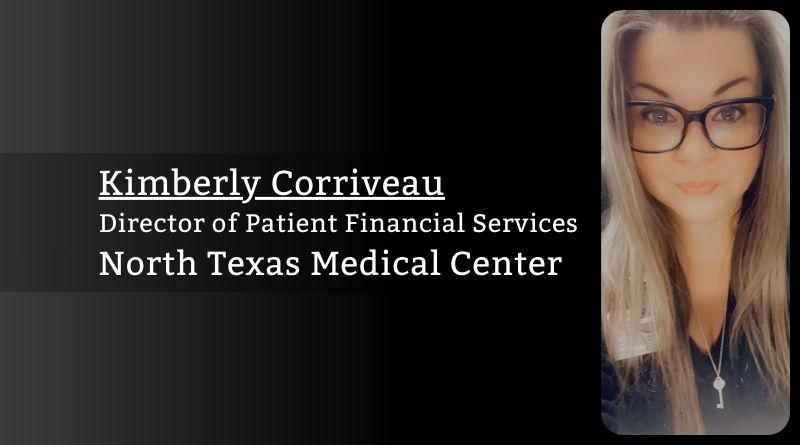Recent Trends in Revenue Cycle Management
By Kimberly Corriveau, Director of Patient Financial Services, North Texas Medical Center
After the 2022 financial healthcare struggle, many healthcare systems have faced the challenge of creating a profitable revenue cycle. According to Becker’s Healthcare, expenses increased while revenue growth fell to 5.1 percent last year from 11.3 percent in 2021. With this new challenge, healthcare systems are identifying ways to not only provide the best quality of healthcare to each of their patients but also how to optimize the current revenue cash flow.
The COVID-19 economic crisis played a key role in accelerating many of the current RCM healthcare trends we are experiencing today. Some of those trends include the automation process and the use of artificial intelligence (AI). We also see a shift towards outpatient services as payers have been requesting extended observation stays.
With the use of automation, healthcare systems are finding ways to lower the cost of care, assist in reducing administrative backlog, and empower staff to treat their patients in a faster time frame. Automation is transforming the revenue cycle industry as it aims to increase effectiveness, save time, and reduce errors. We also see AI starting to play a significant role in the RCM process with the creation of algorithms that assist in gathering information from data sets to predict future outcomes such as patient behavior, billing patterns, and denial trends.
As we advance forward, we can see the patient experience has been at the forefront of all healthcare systems. Improving the patient experience plays an imperative role in the future of healthcare as we see Medicare move towards a more value-based care model.
Provider payments will be constructed from certain metrics, which include cost, quality, effectiveness, efficiency, equity, patient-centeredness, safety, and timeliness.
Patient experience and patient satisfaction play two separate roles in healthcare. Patient experience focuses on what should have happened and how often it happened, whereas patient satisfaction focuses on whether the patient’s expectations were met. Some of the ways healthcare systems have aimed to streamline the patient experience is by improving and creating more accessible payment options for patients, optimizing the diagnostic experience, decreasing wait times, and involving the patient in their own care. Healthcare systems are seeing the importance of moving towards an improved patient experience. By doing so, it will improve the healthcare system as well as the providers’ business success by creating higher profit margins and increasing patient retention. According to a report published by Press Ganey in 2021, “patients’ likelihood to recommend their healthcare experience to others has decreased nationally since the onset of the pandemic. The greatest decreases in scores were largely influenced by patients’ ability to access timely care, including phone response, ability to book an appointment when needed, and seeing a doctor as quickly as possible”. According to Sage Growth Partners research, only 39 percent of health system C-suite executives report using a text messaging feature to improve the patient experience which presents a possible opportunity for healthcare systems to improve the patient experience.
Centers for Medicare and Medicaid Services (CMS) have begun to transition to the value-based care program with the intention of improving patient health outcomes. The ultimate goal is to have healthcare providers focus on the value of care they are providing to their patients rather than the volume of services they are rendering. This program will tier the amount of payment a healthcare provider receives based on the results from the care that was delivered to the patient, such as quality. Provider payments will be constructed from certain metrics, which include cost, quality, effectiveness, efficiency, equity, patient-centeredness, safety, and timeliness. The program is designed to hold providers accountable for their patient’s outcomes and aims to create a larger care team of physicians for the treatment of the patient. With the extension of the Medicare Advantage Value-Based Insurance Design Model extending into the calendar years 2025 through 2030, according to Centers for Medicare and Medicaid Services, “we can expect changes to be introduced that will address the health-related social needs of patients, advance health equity, and improve the care coordination for patients with severe diseases and illnesses. Fifty-two Medicare Advantage organizations representing over 9.3 million enrollees are participating in this year’s model”. By the year 2023, the Centers for Medicare and Medicaid Services aim to have all Medicare and most Medicaid beneficiaries enrolled in the value-based care program. Medicare and Medicaid Innovation expects to share more information on model updates once it becomes available.
The RCM has seen many changes over the past decade. As we move forward, we can see there will be many changes still to come. As we approach 2024, healthcare systems hope to find ways to increase operating cash flows that will improve revenue growth.



